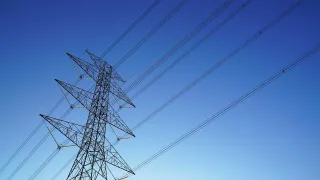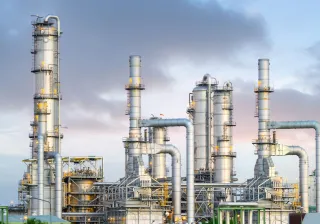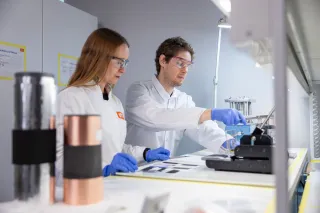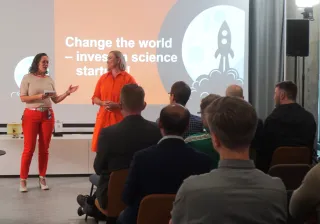The growth of renewable energy demands suitable methods for its storage and transport. One promising solution is converting renewable energy to hydrogen, and storing hydrogen by a novel concept called “liquid organic hydrogen carriers (LOHC)”. This new technology is being studied in the ongoing “LOHCNESS” research project. Solving the storage needs of renewable energy will ensure our sustainable future.
Wind is blowing and sun is shining irregularly. Consequently, the transition from the current fossil dependent system to a carbon-neutral renewable future depends on the capability to store renewable energy with flexible storage times and capacities. Hydrogen could be a viable energy carrier of renewable energy, however, efficient and safe handling of this low-density gas is challenging.
VTT Technical Research Centre of Finland Ltd and the University of Helsinki together with industrial partners study a new concept to store hydrogen, called liquid organic hydrogen carriers (LOHCs). In this system, gaseous hydrogen is chemically bound in liquids that can be reversibly hydrogenated and dehydrogenated using catalysts and elevated temperatures, thus resembling liquid “batteries”. The system is not limited by capacity or time, since liquids can be stored as well in canisters as in large caverns, and as long as needed. While the LOHC concept is still an emerging technology, there are already some activities e.g. by Hydrogenious GmbH in Germany (based on dibenzyl toluenes) and by Chiyoda Corp in Japan (based on toluene).
In the LOHCNESS project, the feasibility and performance of the LOHC solutions are studied to identify the business possibilities and best uses for the LOHC concept. The first results of the project were presented in a seminar held on November 7th 2018. Our research has already generated practical information and improved understanding of the LOHC concept.
The techno-economic feasibility of the LOHC concept for the selected applications was analysed by means of case studies with promising results. For example, the logistics of by-product hydrogen from chlorate/chlor-alkali plants to light industry was identified as a possible low-hanging fruit for the LOHC concept to enter the markets. Indeed, LOHC seemed to be a viable option for this purpose, and even more so if waste-heat would be available for releasing hydrogen. Furthermore, as LOHCs could enable storing hydrogen at low costs, it would be possible to better prepare for the maintenance and unscheduled production breaks, which have been challenging with compressed gas delivery. Another case looked a bit further in the future and considered the import of renewable hydrogen from North-West Africa to Finland. While the all the considered logistic chains made imported hydrogen quite expensive, the LOHC concept was found to be the most competitive alternative for the long-distance intercontinental transport.
Development of advanced catalysts and system components are needed to enhance the efficiency of the LOHC system. In the LOHCNESS project, we developed novel hydrogen release catalysts. The promising catalyst concept was installed into VTT’s in-house hydrogen release unit for the proof‐of‐concept testing which is ongoing in parallel with the demonstration of commercial LOHC concept of Hydrogenious GmbH.
First-hand experiences on how the LOHC system delivers promises for low‐carbon energy are valuable and timely knowledge. Expectations of the LOHC system are high as it could flexibly store renewable energy while being compatible with the present infrastructure for liquid fuels. LOHC could serve industry and energy sectors, residential use, maritime sector and mobile applications supported by energy companies and manufacturers of catalysts, fuel cells, electrolysers and other process components.
Research project is funded by Busines Finland (1508/31/2017) and partners: VTT Technical Research Centre of Finland Ltd., University of Helsinki, Fortum, St1 Renewable Energy Oy, Oy Woikoski Ab, Leppäkosken Sähkö Oy, Aino Energia Oy.
Contact: paivi.aakko‐[email protected], [email protected].
Website: www.vtt.fi/sites/lohcness





